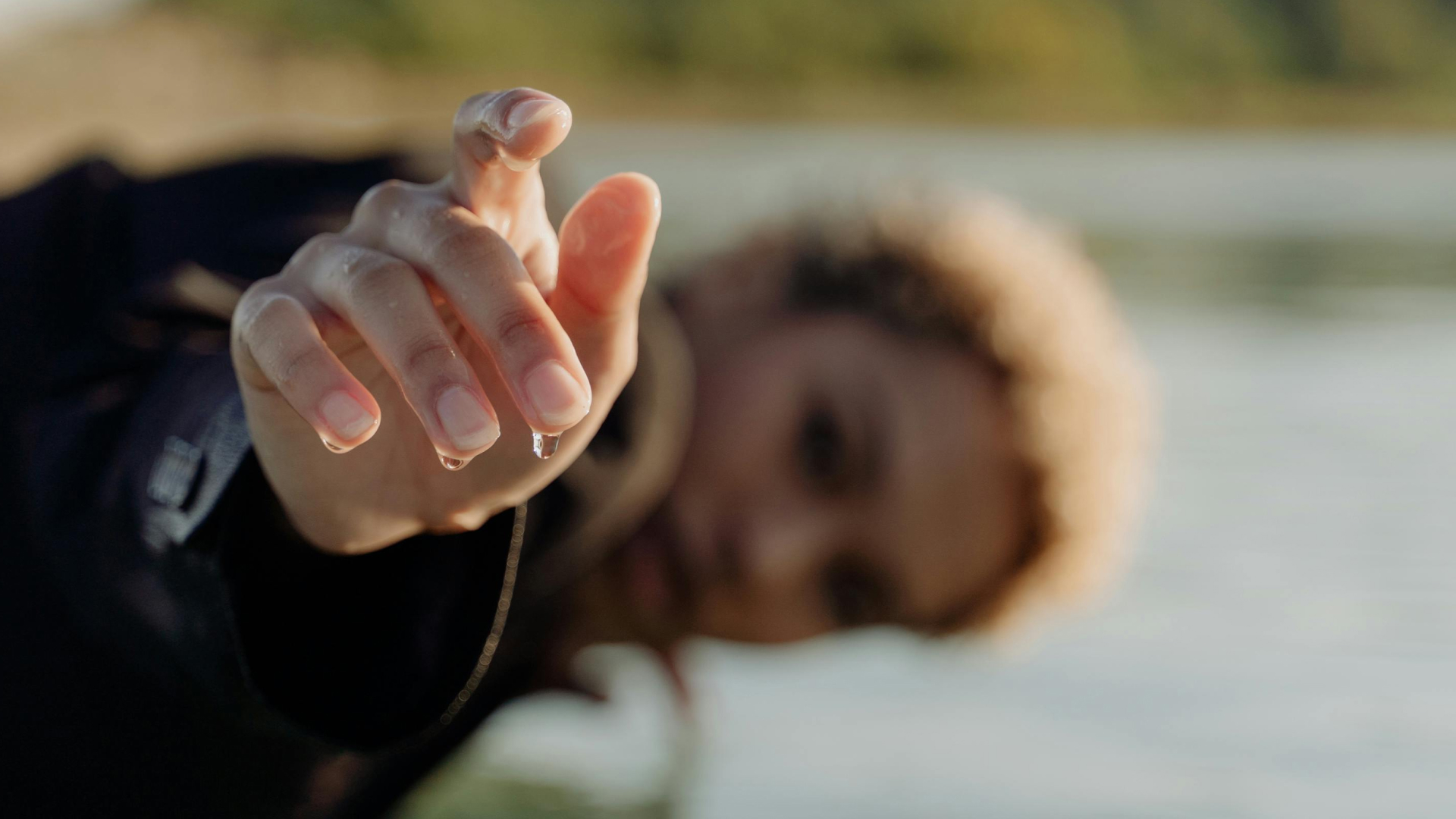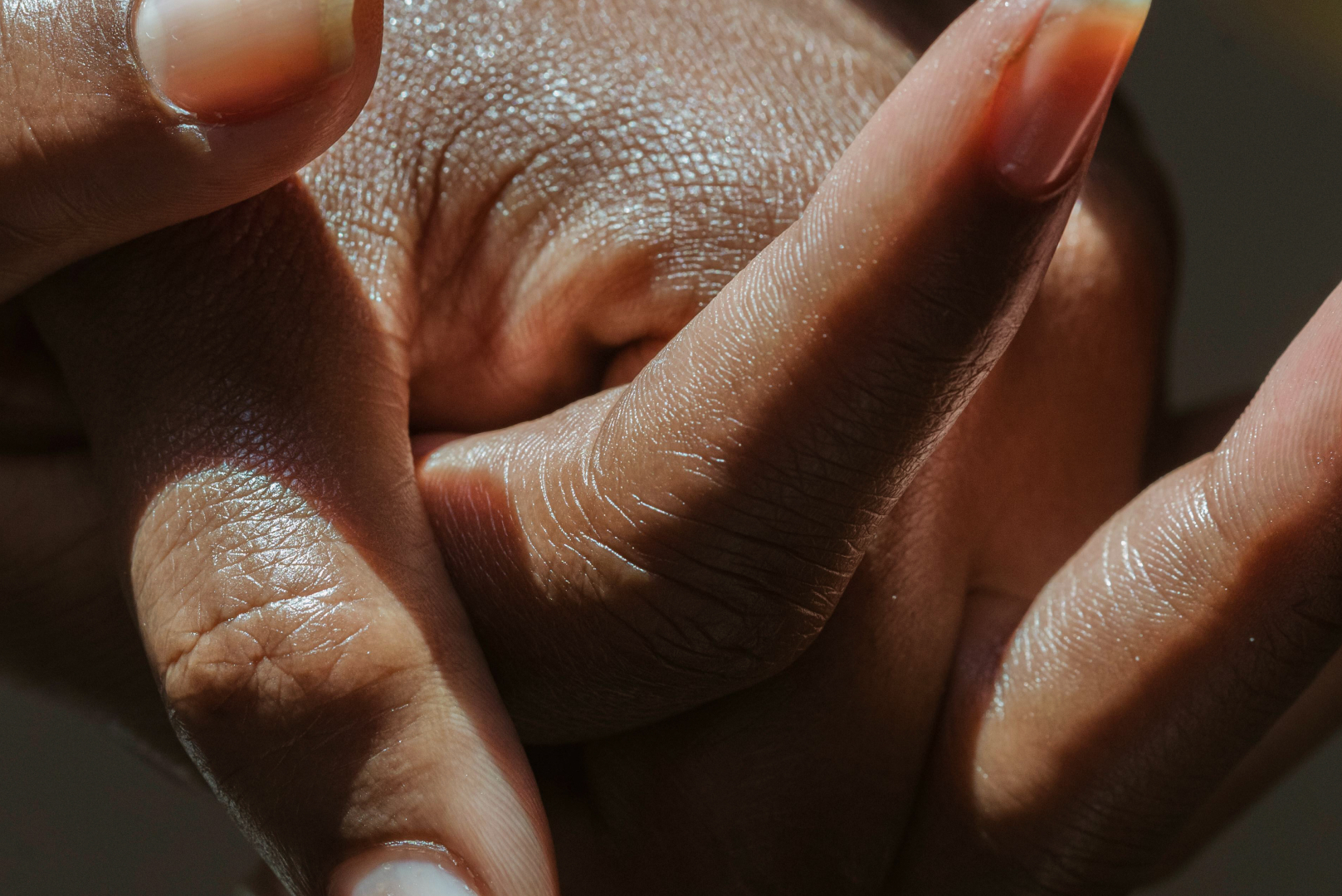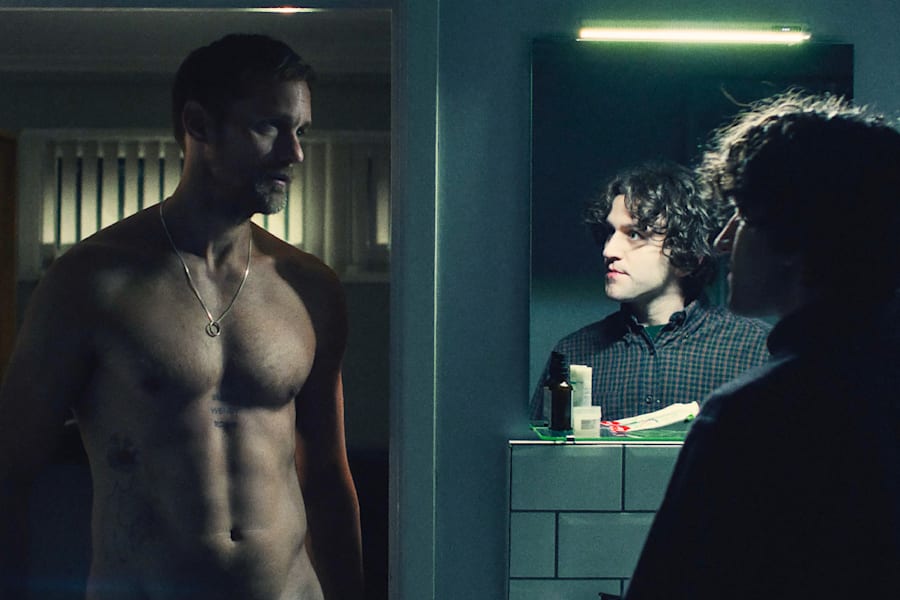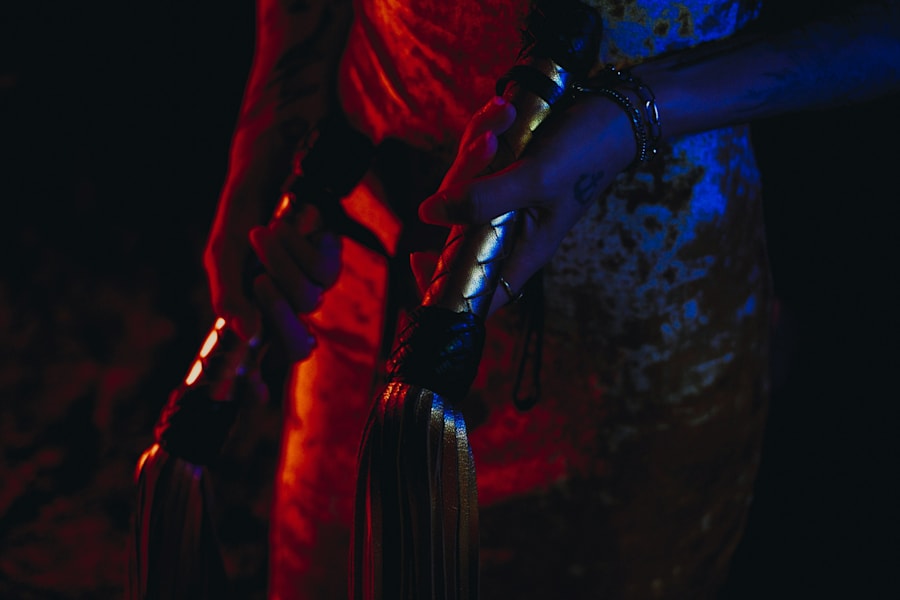Judgment, Anxiety & Authenticity: Dating and Mental Health

Dating apps: love them or loathe them, they’re a part of modern life. Think about it — when was the last time you struck up a conversation with someone who caught your eye, bumped into a handsome stranger in a bookshop, or gave your number to someone in a bar?
Sure, movie-style meet-cutes still happen, but they’re pretty rare. Unless you meet at work, hang out with the same friends, went to the same high school or college, or frequent the same places, for many of us, meeting someone IRL feels a lot less likely today.
Three in ten U.S. adults say they’ve used a dating app or site to search for connection. And it’s easy to see why: dating apps expand your pool of potential partners far beyond your immediate circle. Whether you're looking for a serious relationship, a casual connection, or even a new friendship, apps create opportunities for meeting new people. In fact, one in ten partnered adults — meaning those who are married, living with a partner, or in a committed relationship — met their current significant other through a dating site or app.
But the world of online connection can also come with emotional challenges. Research shows that app use can sometimes be linked to lower self-esteem, increased anxiety, and greater body dissatisfaction. One review found that nearly half of the studies surveyed reported a negative association between dating app use and mental health, with its authors describing a "feedback loop of appearance-based validation-seeking and self-objectification."
And if more than one in five U.S. adults live with a mental illness, according to the National Institute of Mental Health — combined with the millions of people scrolling, liking and swiping every day— it’s clear that dating and mental health are already deeply intertwined.
Dating can be tricky enough as it is. But how does modern dating actually impact our mental well-being? And how can you search for connection while still protecting your emotional resilience? That’s what we’re here to explore.
What Are Dating Apps Doing to Your Mental Health?
Dating apps were built to bring people closer together — but for many, the experience can feel surprisingly isolating.
"[Dating] isn't as fun as it used to be — now it just seems like admin," said one interviewee in a recent article exploring the emotional toll of online dating. Research backs this up: a 2020 study found that users of swipe-based dating apps (SBDAs) reported significantly higher levels of anxiety, depression, and psychological distress than non-users. Another study showed that the more time people spent on dating apps, the more likely they were to experience signs of addictive behavior — craving the apps even when the experience wasn't making them feel good.
Quick judgments, appearance-driven swiping, and the constant exposure to rejection can all chip away at mental well-being. Over time, these patterns can leave users feeling disconnected, disillusioned, and emotionally exhausted. A 2024 study by Forbes Health found that 78% of dating app users reported feeling emotionally, mentally, or physically drained by the process.
Online dating doesn't necessarily create new challenges, it often just intensifies the ones we already deal with. When you understand how these patterns show up, it's easier to move through dating apps with more care, self-awareness, and compassion for yourself.
Dating Apps and Anxiety
When it comes to dating, anxiety can creep in before you even realize it. Especially on dating apps, where people are more likely to judge a book by its cover and where first impressions are everything. From wondering if your photos are "good enough" to stressing over why someone didn't message you back, the stakes can start to feel surprisingly high for something that’s meant to be fun.
One psychologist who interviewed gay men using apps noted that some respondents reported feeling "sad, anxious, or lonely" even just opening the app, leading them to swipe for distraction rather than genuine excitement. Sometimes, a hookup or match provided temporary relief — but it was often followed by a deeper sense of emptiness, fueling the urge to return to the app in search of another hit of validation.
Of course, this emotional rollercoaster isn't limited by gender or orientation. For anyone, dating apps can create a loop of hope, disappointment, and self-doubt. If no one catches your eye, you might worry you’ll never meet anyone. If you get few matches, you might question your attractiveness or worth. Research shows that constant comparison to others' carefully curated profiles can heighten feelings of insecurity — even though you're only seeing a highlight reel, not the full picture.
Ghosting adds another layer to the anxiety. When a conversation suddenly drops off with no explanation, it can leave you spiraling, wondering what went wrong, ruminating over what you said or how you came off during the interaction. It's a common experience — but knowing why people ghost, and how to get over it can help you move through it with more self-compassion and perspective.
One way to ease some of that early anxiety is by putting a little extra thought into your profile. Ask yourself what you’re looking for, and who you want to attract. If you’re not sure where to start, this guide to building a better Feeld profile has a few quick, practical tips to help you show up authentically and set the right tone from the start.
Dating and Depression
There are many reasons why someone might experience depression. It can be linked to biology, past trauma, life events, loss, or simply living in a world that often feels overwhelming. Sometimes, it's a slow build-up of different stresses; other times, it can arrive without any clear cause at all. Dating — like any area of life that asks us to be vulnerable — can be influenced by those feelings.
Rejection, for example, can feel painful. In real life, if you approached someone and they weren't interested, you'd probably feel a bit disappointed, but you might also pick up on their kindness, tone, or body language, helping you move past it. On dating apps, though, those human nuances can get lost. It's easier to misinterpret silence as something personal or to feel the sting of rejection more sharply when you're already feeling fragile.
And while not everyone spends hours scrolling through matches, even casual use of dating apps can sometimes heighten feelings of loneliness, low self-worth, or self-doubt — especially if you find yourself comparing, second-guessing, or feeling pressure to always be "on." As one of the aforementioned studies explains: “Users who encounter rejection frequently on dating apps may be more likely to experience poorer self-esteem, depressive symptoms or anxiety.”
Research from the Pew Research Center shows that while dating apps have made it easier than ever to meet new people, many users report feelings of frustration, burnout, and emotional exhaustion. Other studies, like those gathered by the Therapy Group of NYC, suggest that repeated exposure to rejection — or even the feeling of being ignored — can sometimes contribute to depressive symptoms, particularly for those already navigating mental health challenges.
Psychologist Martin Graff points out that "repeated rejection [on dating apps] can lead to dejection and reduced self-esteem because the person may internalize the rejection as a reflection of their own worth."
Taking care of your mental health while dating might involve setting boundaries around how often you use apps, taking breaks when you need to, or being honest with yourself (and others) about your needs. After all, whether you're looking for a relationship, a friendship, a moment of connection, or simply exploring, your well-being always comes first.
Dating Someone with Mental Health Issues: What You Need to Know
When you're not feeling your best mentally, dating can feel more complicated. You might be more sensitive to rejection or feel pessimistic about love, sex, and relationships. But what about when it's your date who's dealing with mental health challenges?
First of all, remember that you can’t – nor is it your responsibility to –change them. As writer Beth McColl, who has experienced her own mental health issues, put it: “A relationship cannot… erase my mental illness and all memory of it.” She advises letting your date know you’re open to talking and learning more about their mental health, and doing a little research about the specifics of their condition in your own time.
Psychologist Linda Gask advises getting to know your date’s triggers, and encouraging them to do small, achievable things like going for a walk when they’re feeling low. Make sure not to neglect your own wellbeing, though: “Try to delay talking with them about what effect it is having on you until they are feeling well enough to have a conversation about it,” says Gask. When someone is in the middle of a mental health crisis, they may struggle to process how their behavior is affecting others. Waiting until they are feeling more stable gives space for a calmer, more constructive conversation, without adding extra guilt, pressure, or overwhelm to what they’re already experiencing.
If you’re unsure how to start that conversation when the time is right, here are a few gentle ways to begin:
- "When you're feeling up for it, I'd like to talk a little about how things have been affecting me, too. I want us to work through it together."
- "I really care about you, and when you’re feeling ready, I’d love to check in about how we’re both doing."
- "Whenever you're in a good place to chat, I’d like to share a few things I’ve been feeling — no rush, just when you feel comfortable."

Coping Mechanisms for Mental Health in Dating
Before you jump (or dive back) into dating, it’s worth checking in with yourself. Life coach Catri Barrett recommends making sure you feel resilient enough to handle ghosting or rejection. Ask yourself: “Am I ready for the ups and downs that might come with this?” If the honest answer is no, you might want to press pause. Focus on taking care of yourself first — dating will still be there when you're ready.
If you do feel ready, setting some boundaries can really help protect your energy. Think about what you actually want from dating right now — and be honest with yourself. Maybe you only want to check apps a couple of times a week. Maybe you want to ease in slowly with low-pressure chats. Maybe you’re ready to meet people in person. It might feel a little scary at first, but communicating your needs to someone you’re still getting to know can make dating a lot less stressful.
Of course, even when you’re doing everything "right," dating can still be tough sometimes. As counsellor Georgina Sturmer says, “We’re not going to be the perfect match for everyone we meet.” Everyone experiences rejection at some point, and it doesn’t mean there’s anything wrong with you. If dating starts making you feel unhappy or you notice signs of unwanted, unhelpful feelings because of it, it might be time to take a step back. Logging off the apps, taking a break, or focusing on yourself for a while is never a bad idea.
And if something feels off — whether it’s pressure, disrespect, or just a bad gut feeling — pay attention. Recognizing red flags early can save you a lot of heartache down the line.
If dating is bringing up bigger emotions — like deep anxiety, sadness, or self-doubt — talking to a therapist can be helpful. Therapy can give you tools to cope, build resilience, and figure out what kind of dating experiences actually feel good and healthy for you. There are plenty of gender-affirming therapists out there, if that’s something you’re looking for.
At the end of the day, dating should fit into your life — not take it over. Listening to yourself, setting boundaries, asking for what you need, and stepping back when you need to are all integral for attending to your mental health hygiene while dating.
Dating with Mental Health Issues
If you’re experiencing a dip in your mental health, whether that’s related to your dating app use or not, it can feel daunting to share with a date. Opening up isn’t easy, particularly to someone you’ve only recently met. It’s natural to worry how they’ll respond, whether they’ll judge you, or how empathetic they might be.
Remember that you don’t have to share more than you’re comfortable with – a simple and short explanation like “I’ve been feeling a bit low lately, so dating is a little more daunting for me at the moment,” will suffice in the early stages. Your date’s reaction will give you an indication of their ability to understand and support you. As scary as it is making yourself vulnerable, it’s important to be honest when building a connection.
If you feel a connection with someone, it can be tempting to pour your heart out. But oversharing too soon when dating can overwhelm the other person. Researcher Brené Brown apparently coined the term ‘floodlighting’ to describe this. It can speed up feelings of closeness and intimacy, but that’s not usually a good thing – you don’t want premature feelings to overshadow any red flags. It takes time to properly get to know and trust someone, and it’s best to let those bonds develop before revealing all, to ensure your date is someone able and willing to support you.
Life coach Barrett’s advice is relevant here, too – are you resilient and well enough to date? If it’s likely to make you feel worse or exacerbate mental distress, taking a break might be best for you. Don’t be afraid to seek help from a qualified therapist if you’re struggling.
The Importance of Authenticity in Dating
One thing a lot of people say about online dating is that it can feel a bit surface-level — first impressions often come down to a few photos or a short bio. But the truth is, real, meaningful connections absolutely can happen through apps — especially when you show up as your authentic self.
Feeling confident in who you are and clear about what you need can go a long way in protecting your mental health while dating. That doesn’t mean you have to have it all figured out before you put yourself out there — far from it. People living with mental health challenges are just as deserving of love, sex, and connection as anyone else. When you feel grounded in yourself, it just gets a little easier to communicate openly, set boundaries, and recognize when something — or someone — is a good fit.
Being yourself — quirks, complexities, everything that makes you you — is key to building the kind of connection that actually lasts. It can also make the process of dating itself feel more rewarding. Being honest about who you are and what you're looking for — whether it’s casual, committed, exploratory, or anything in between — helps you form matches that support your wellbeing rather than drain it.
It’s important to recognize when your mood and general sense of wellbeing are dipping, and to take a moment to ask yourself what might help. If dating apps are doing more harm than good, it’s okay to take a break. Your worth isn’t defined by Likes or DMs – it’s about how you feel in yourself. Focus on what brings you joy, and consider how you might approach dating in a way that feels more aligned with your values and needs.
Dating shouldn’t feel like a chore. It can and should be fun, exciting, and nourishing.
When you’re ready to explore, Feeld is a space where curiosity, connection and care come first. Download the app to discover like-minded people, or learn more through our stories – where you might find inspiration, reassurance, and maybe even a fresh perspective.


